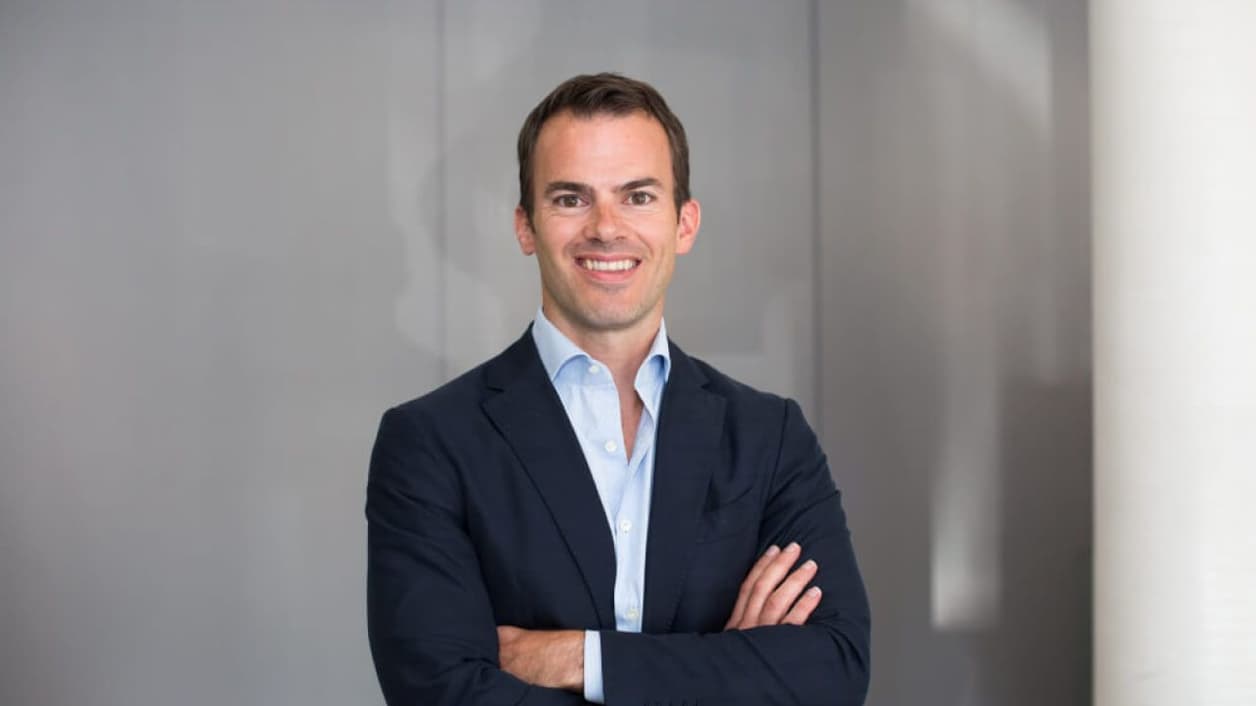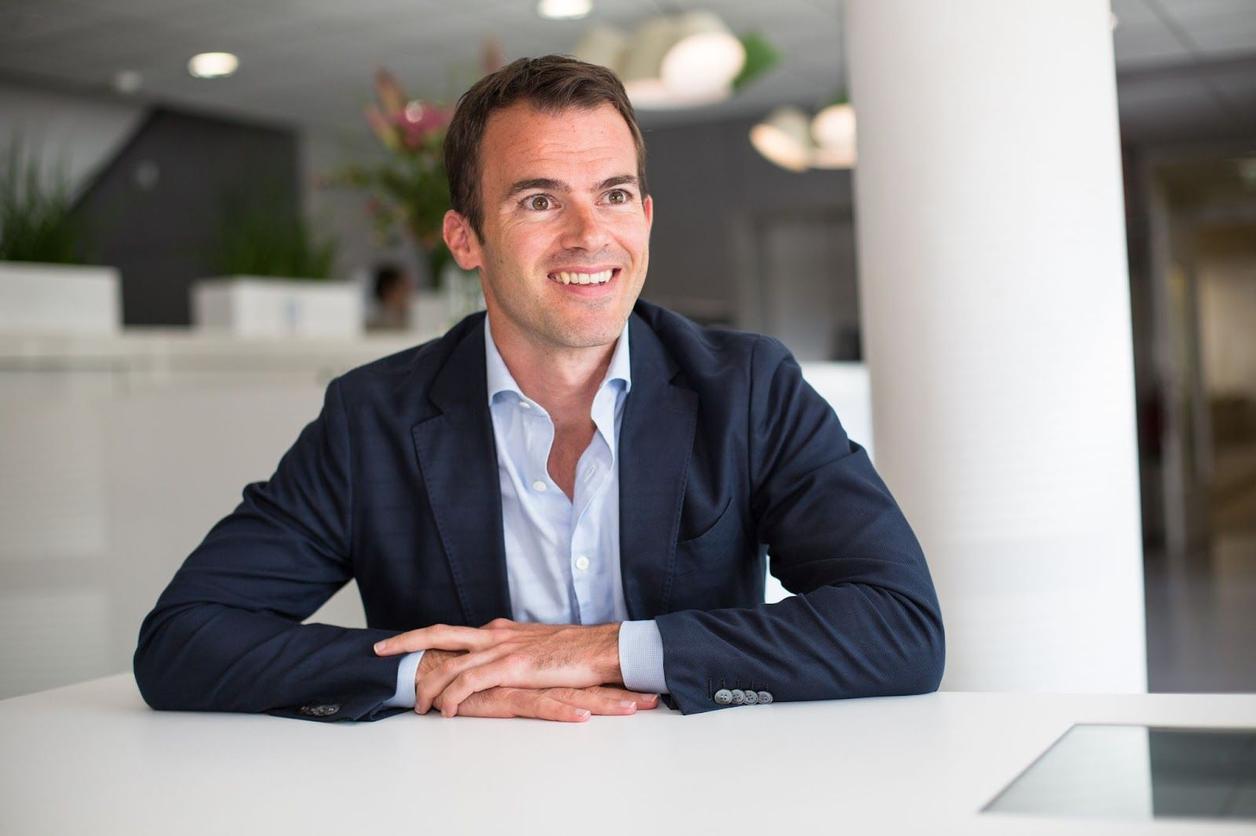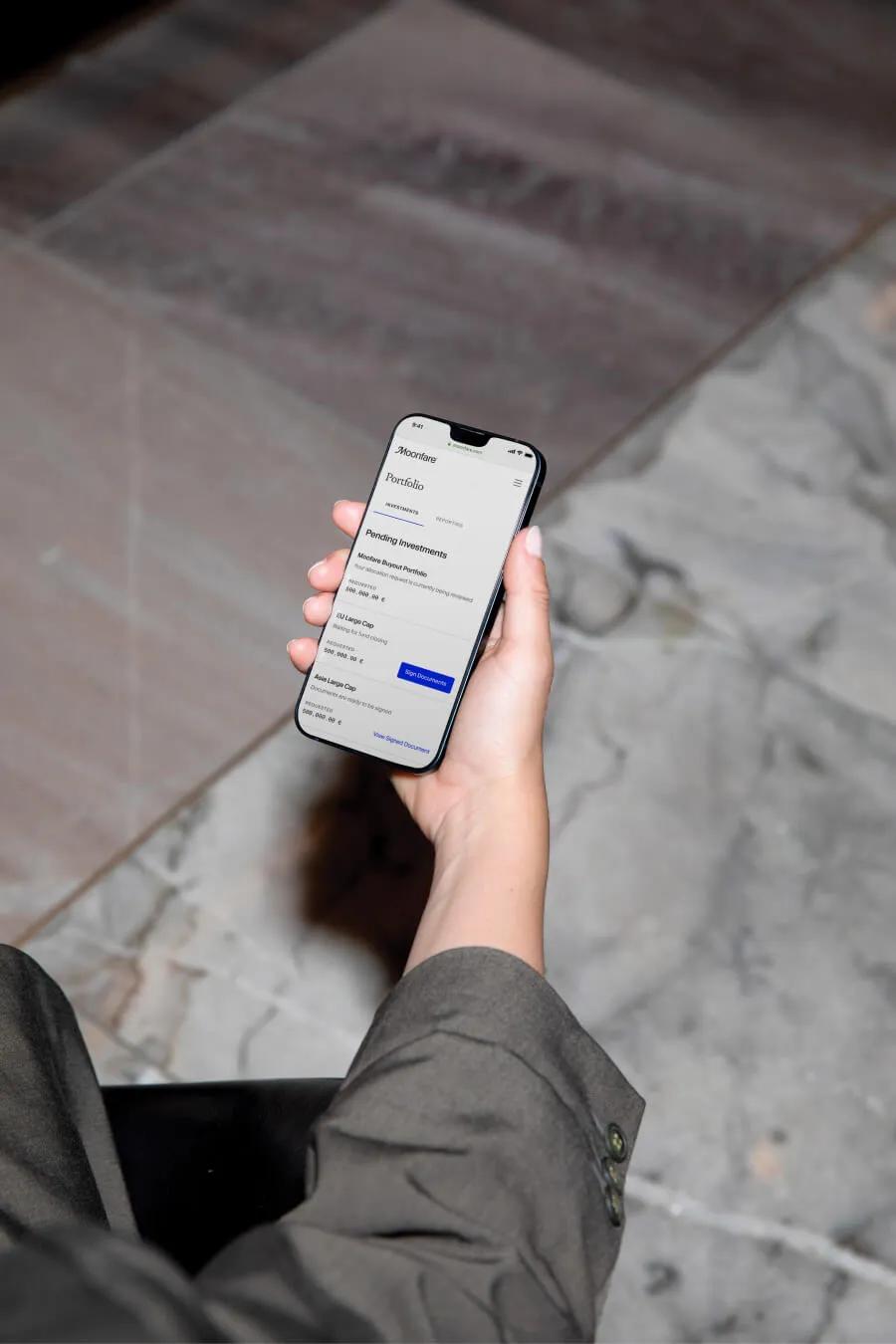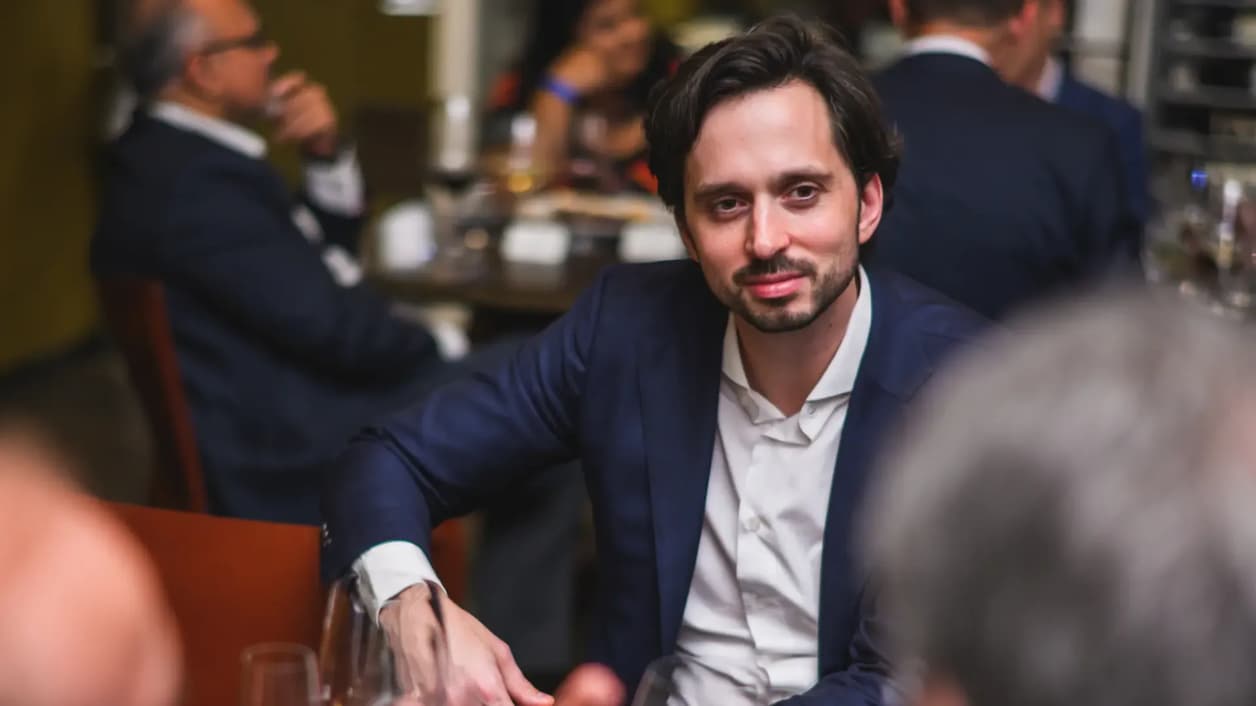
Jochem Theunissen, an investor on Moonfare platform and a chief financial officer at a banking-as-a-service platform Vodeno, talks about his decision-making as an investor, the opportunities he sees in the market and the appeal of private equity. “The fact that the investments come with a longer hold gives me ease of mind,” he said in a conversation with Moonfare.
Jochem Theunissen knows the private equity industry from both sides. He’s spent six years as a fund manager at a boutique Dutch investment firm, then “switched sides” and joined a number of private equity-backed companies, ranging from e-commerce to software providers. Based in Amsterdam, Theunissen currently manages finances at Vodeno, a banking-as-a-service platform, backed by US private equity fund Warburg Pincus.
Were you mindful of joining companies that are private equity-backed or was that just a coincidence?
Very mindful. I like how private equity works, its approach, the mindset and its objectives model that’s quite different from what you find elsewhere, for instance, in the space of family-owned businesses or listed companies. In my view, it all comes down to like-minded professionals on both sides. Together we set well-defined goals for the next four to six years and then put every effort needed to achieve these goals. Of course, you’re still dependent on certain external factors, but in a private environment, you can optimize companies better and faster compared to public companies.
Personally, I tend to be rather competitive, too, I’m an eager sports enthusiast. Maybe that’s the reason why I also like to put maximum work in to get the best results.
What should entrepreneurs understand when they accept a private equity investor in their company?
It’s important to understand that you're bringing in an institutional party that comes with an institutional setup. Private equity can provide a lot of added value to your commercial side and helps excel the (financial) results. It also brings in a network and capital base for mergers and acquisitions. But of course, as an entrepreneur, you should acknowledge that you're no longer the only party and you have to work closely with the investor.
You're also a private equity investor yourself. What is the big appeal of private equity for you?
I feel comfortable with the asset class – I know how the funds function, how allocations happen, what fee structure is applied. I believe in the profiles and backgrounds of professionals executing the investments.
For me, private equity means investing through cycles– it’s a mid to long term investment. You invest in fundamental trends and companies but can still have well-diversified risk across the portfolio.
With public markets, I personally tend to check investments very frequently. But the beauty of private equity is that I can’t really touch your investment. The fact that it comes with a longer hold gives me ease of mind. I also have a lot of trust in the model and the managers showing good track records. So I would sleep better knowing that I have larger amounts in private equity than symbolic amounts in stock markets.
How do you make your private equity investment decisions?
The biggest (dis)qualifying factor is the track record and there are many players with a good track record. Until now, I've done multiple investments and I’m now looking for ways how to diversify between fund managers. My tendencies are tech-related funds, sometimes growth capital and US markets. For example, I’ve made investments in venture capital firm DFJ and Insight Investment. I also started to look more into risk mitigation and diversification by doing co-investments, such as in AlpInvest, and investing in some secondary or restructuring funds.
I try to select good General Partners (GPs), well-performing funds and then mix and match them so their profiles are complementary to each other. For me, this is a way to construct a diversified portfolio across verticals, geographies, capital structures, market timing. I try to diversify on these major variables.

How would you describe yourself as an investor? Are you more conservative or willing to accept higher risks for higher yields?
It's difficult to benchmark yourself but I think I am rather conservative. I’ve got a significant part of my capital in real estate, which tends to be relatively conservative, at least in mature markets. Over time I obviously also lost some money once in a while and I paid for those lessons.
Private equity is an asset class with higher risks compared to bank deposits or investing in your own house but I don’t believe I make a lot of risky private equity bets. I do have a few direct private investments that, by default, come with a higher risk. And some of the public market investments are more volatile - both up and down so I try to mix and blend.
Moonfare’s model is very suitable for me. It opens and enables investing in funds that you normally wouldn’t be able to as an individual. Instead of investing with one smaller GP or making a few investments with a very large ticket, I can spread my bets.
What about cryptocurrencies? I’m asking because they are among the riskier investments.
I'm reserved concerning cryptocurrencies but I clearly see the underlying value and the innovation that blockchain brings. In general, however, cryptocurrencies are still too vulnerable overall. Look at the volatility and the security issues. Look at some of the purposes crypto is used for. It’s getting more mainstream and accepted but as an investment class, I still find it tricky. I cannot always follow the ups and downs and then as an investor, I would get nervous.
I’ve put a relatively small amount into a hedge fund that invests in crypto and blockchain-related funds but not in individual coins or crypto companies. So I’ve made some allocations not to be completely uncovered but I'm not invested with any significant amount.
In the last two years, we've seen a lot of turbulence in the markets. Right now we're facing a prolonged period of inflationary pressures, higher interest rates, there are geopolitical risks. Did you react to these developments?
I haven’t done a lot of rebalancing, but I tried to avoid unestablished stocks and be more mindful when investing in healthcare and tech in general. Overall market valuations came down a little and I tried to adjust, but no major moves. I also strongly believe in some fundamental trends and technologies such as hydrogen.
With the most recent turmoil, I took a step back from public markets and divested a bit. I also follow inflation movements and assess the natural hedge I have in my portfolio. With a significant allocation to real estate, I think I have some hedge there.
With private equity, I feel relatively assured. I believe in the fundamental aspects of the model. The beauty of it is that you can’t touch your investment so you don’t need to worry too much and can get back to the investment in seven to ten years.
Post-COVID, especially, there is a lot of talk of the sustainable shift. Are ESG principles and sustainability investing important to you?
It's a topic that’s important in my life and it’s important to the people around me. As a topic, sustainable living is an active conversation within my family, too. In terms of investing, I believe ESG will thrive best when investments will generate healthy returns, becoming attractive for the mass market and big players.
In my view, ESG will play a role in how money is invested, mostly for large institutional investors such as pension and mutual funds. Personally, I don't invest in any heavy industrial and pollution-related companies or funds. Carbon equity or climate-related proposition will get my extra attention compared to any other generic investment proposition. But currently, I don’t have a finite answer on how sustainability will impact my personal allocation and fund selection.
Where do you get your financial information and how do you process it? Is there an analytical framework that you have or is it more guts and feels?
I would say somewhere in the middle. I use some public sources and market research. I like the information provided by Moonfare on individual investment funds which is usually quite comprehensive. Once I've read enough material and have an understanding of the investment and can see other large investors in the market going in certain directions, I make a decision.
If you would get an investment decision from an AI, would you consider it valuable?
I think it's very valuable as human analysis and judgement can be outsmarted. However, since investing your own money is still a personal decision, I would like to have some human’s say in the end – especially for the allocations of sizable amounts. In addition, I would like to understand how AI comes up with recommendations, but I would also study the investment by myself.
What particular global event influenced you the most as an investor?
I started in the investment world when the 2007 credit crunch and subsequent recession happened. These events determined quite a lot of my thinking about investing, market volatility in public markets and how equity and debt financing play into the overall equation, for example in public, energy and real estate markets. That crisis gave me a reference for how I invest today.




